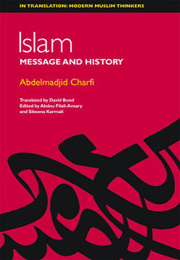4 - Legislation
from Part One - Characteristics of the Message of Muhammad
Published online by Cambridge University Press: 12 September 2012
Summary
The first observation would be that revelation does not speak in terms of the Sharī'a as a divine law; it speaks of it as a way for the believer to follow. From this point of view it is a binding commitment. The actual details of conduct are only sketched out; they are solutions to particular challenges facing the community at a given moment. This is why the solutions are diverse, reflecting as they do the variety of situations arising. Most questions, relating either to conditions prevailing at the time of Muhammad or to sub sequent eventualities, are not explicitly addressed in any given text.
These guidelines are essentially of a moral and educational nature and were present from the Meccan period onwards. They concern questions of liturgical practice, although they cannot be separated from the main thrust of divine revelation at that period: God's unity, resurrection, reward and punishment for deeds committed, and the prophetic missions. Prayer, alms-giving, good deeds, truth, patience, forbearance, devoutness, faithfulness and loyalty, chastity, freeing slaves, caring for orphans, the destitute and prisoners, giving their due to family members and strangers alike: revelation gave priority to these questions during the Meccan period, while forbidding murder, injustice and aggression, tyranny and abuse of power, depravity and fornication, lies and defamation, squandering and hoarding of wealth, greed and miserliness, cavilling and backbiting, the chiding of beggars and the exploitation of orphans. All of these moral guidelines and prohibitions are signposts on the way the believer must follow.
- Type
- Chapter
- Information
- IslamBetween Message and History, pp. 59 - 76Publisher: Edinburgh University PressPrint publication year: 2009



